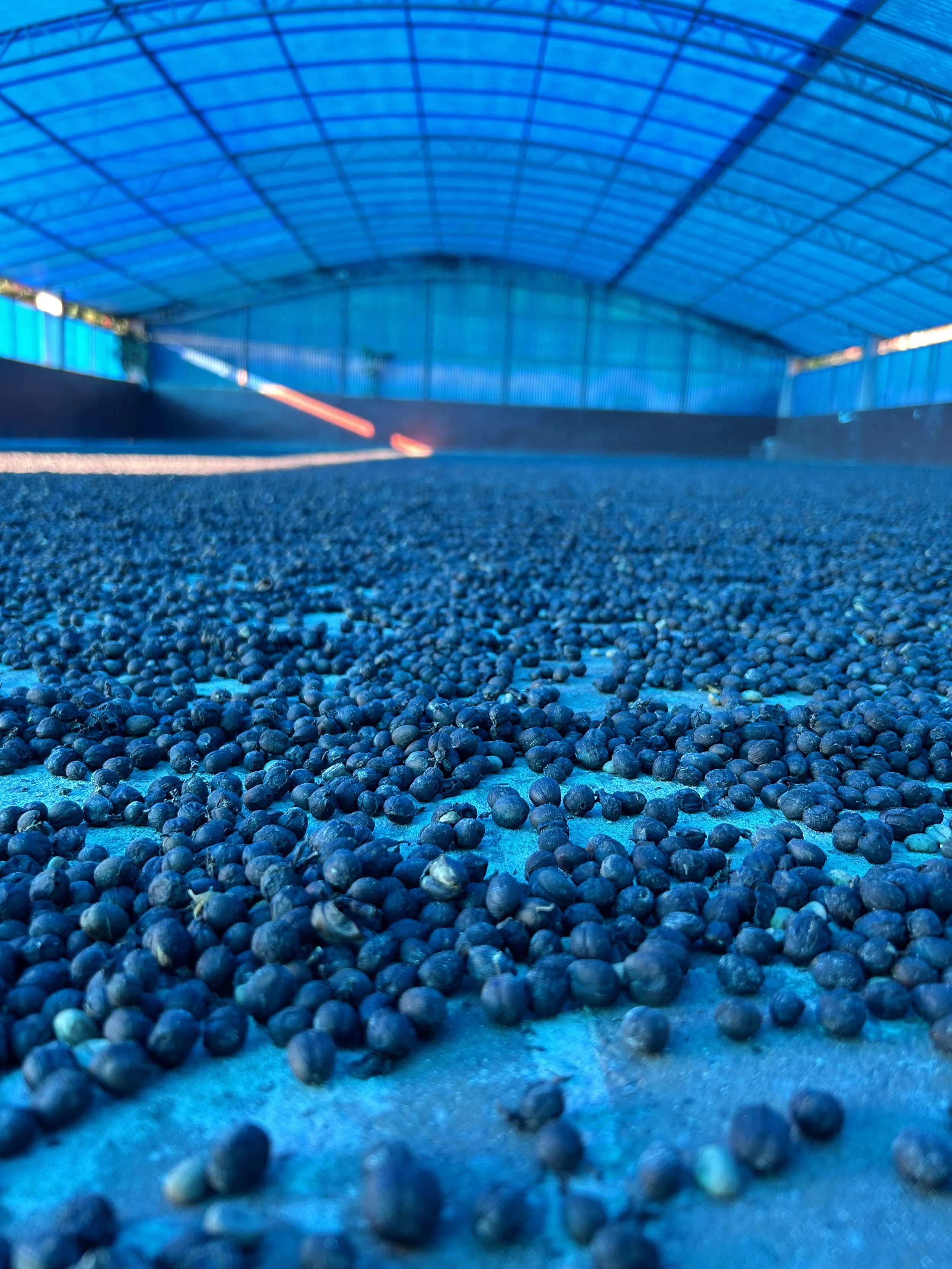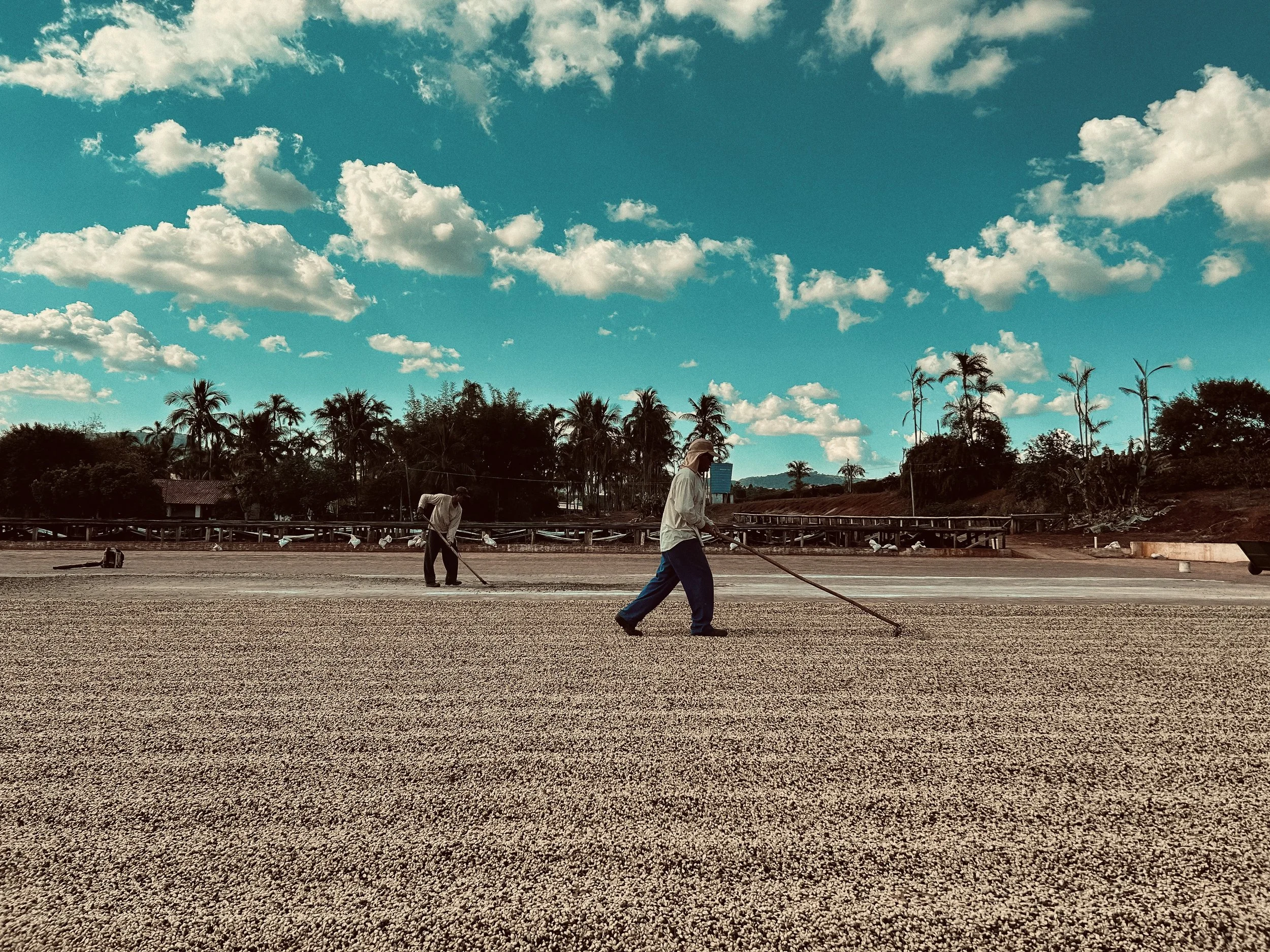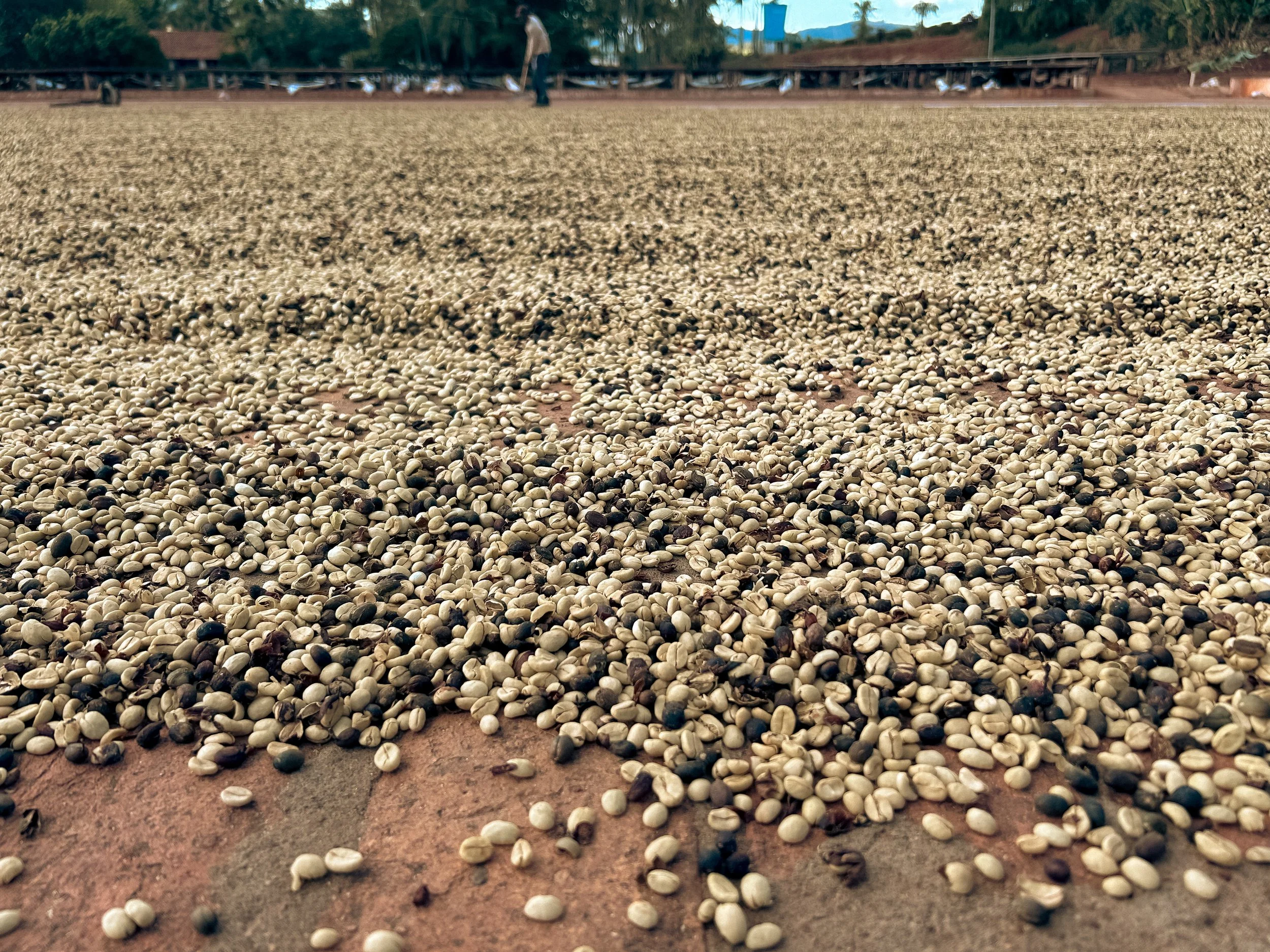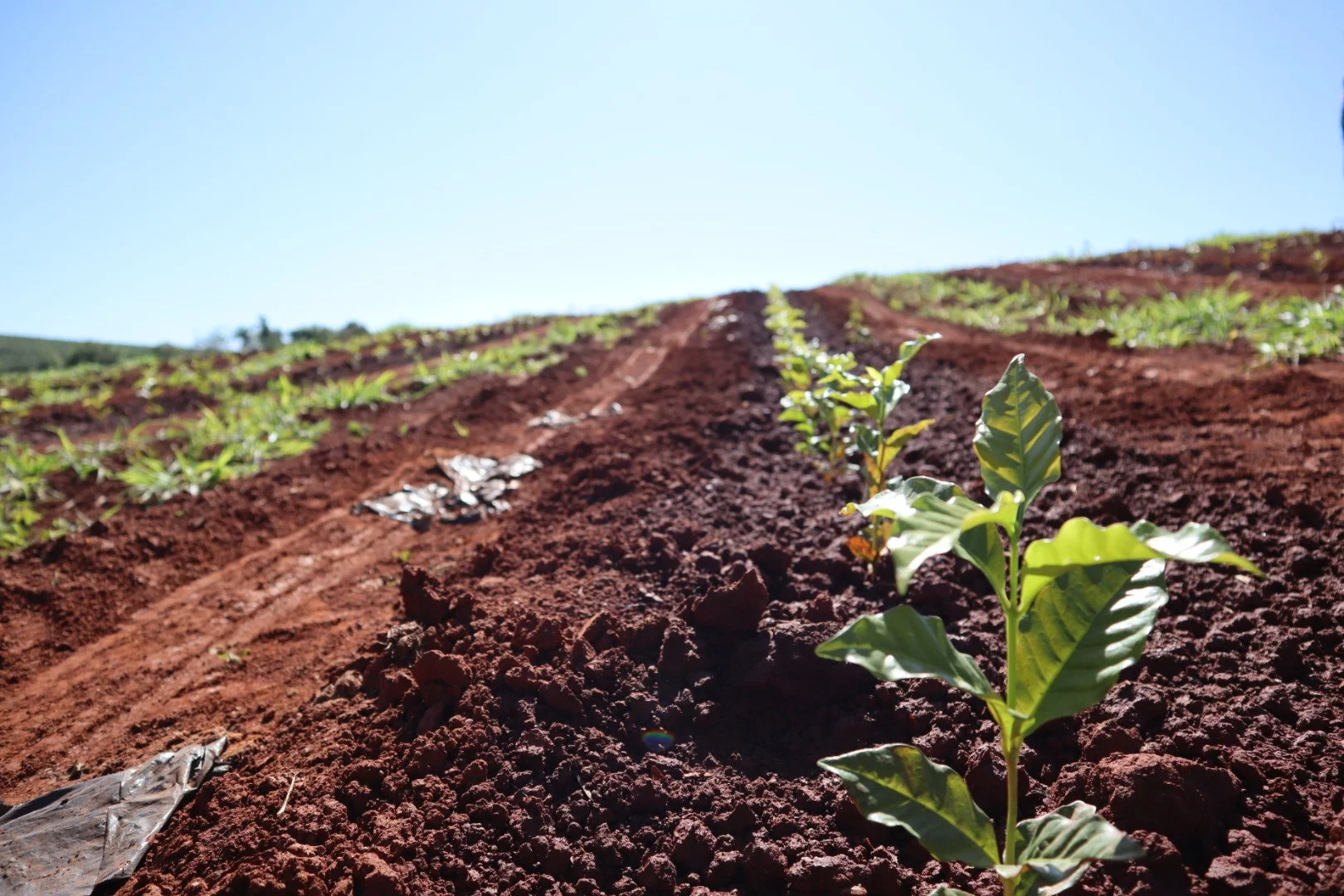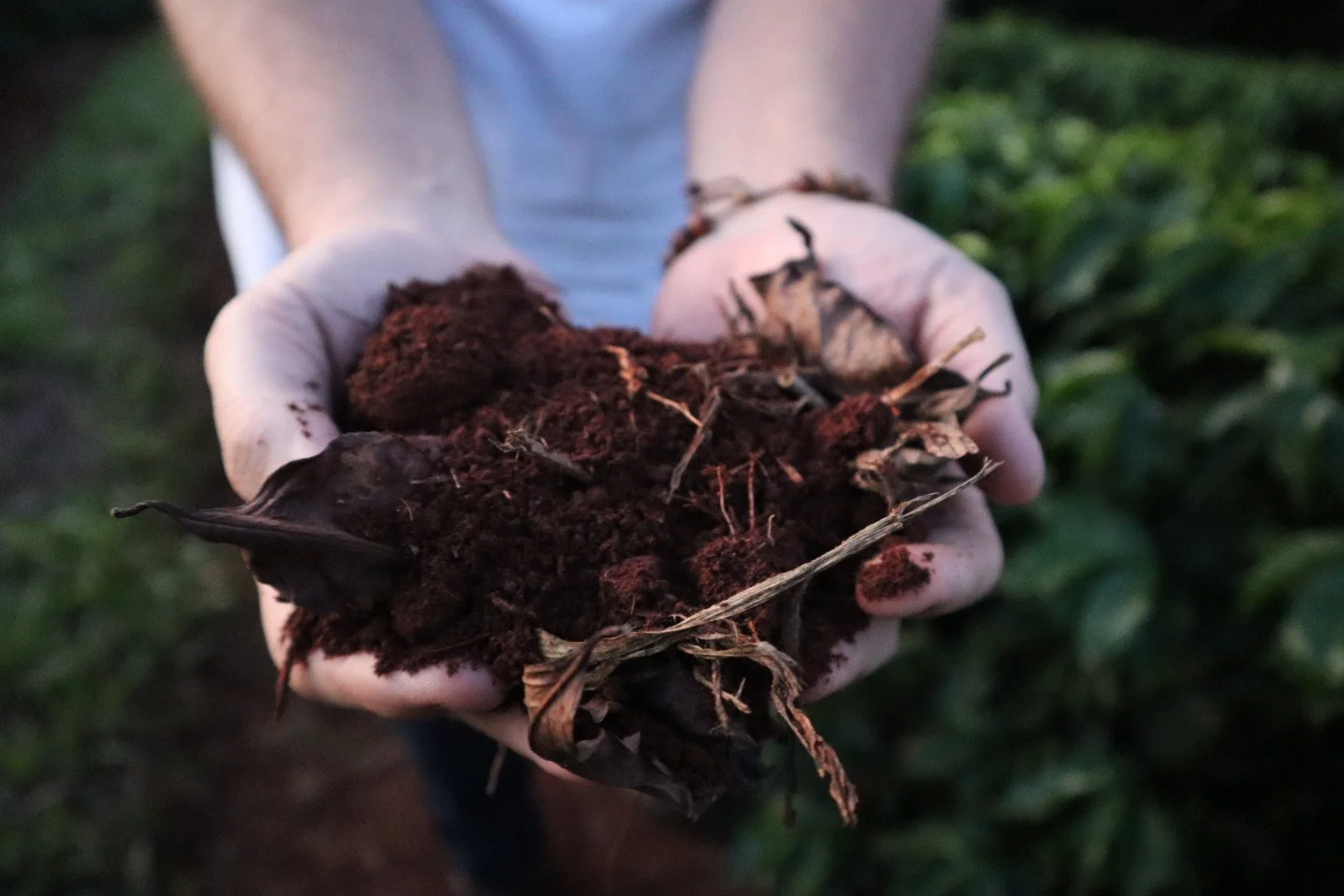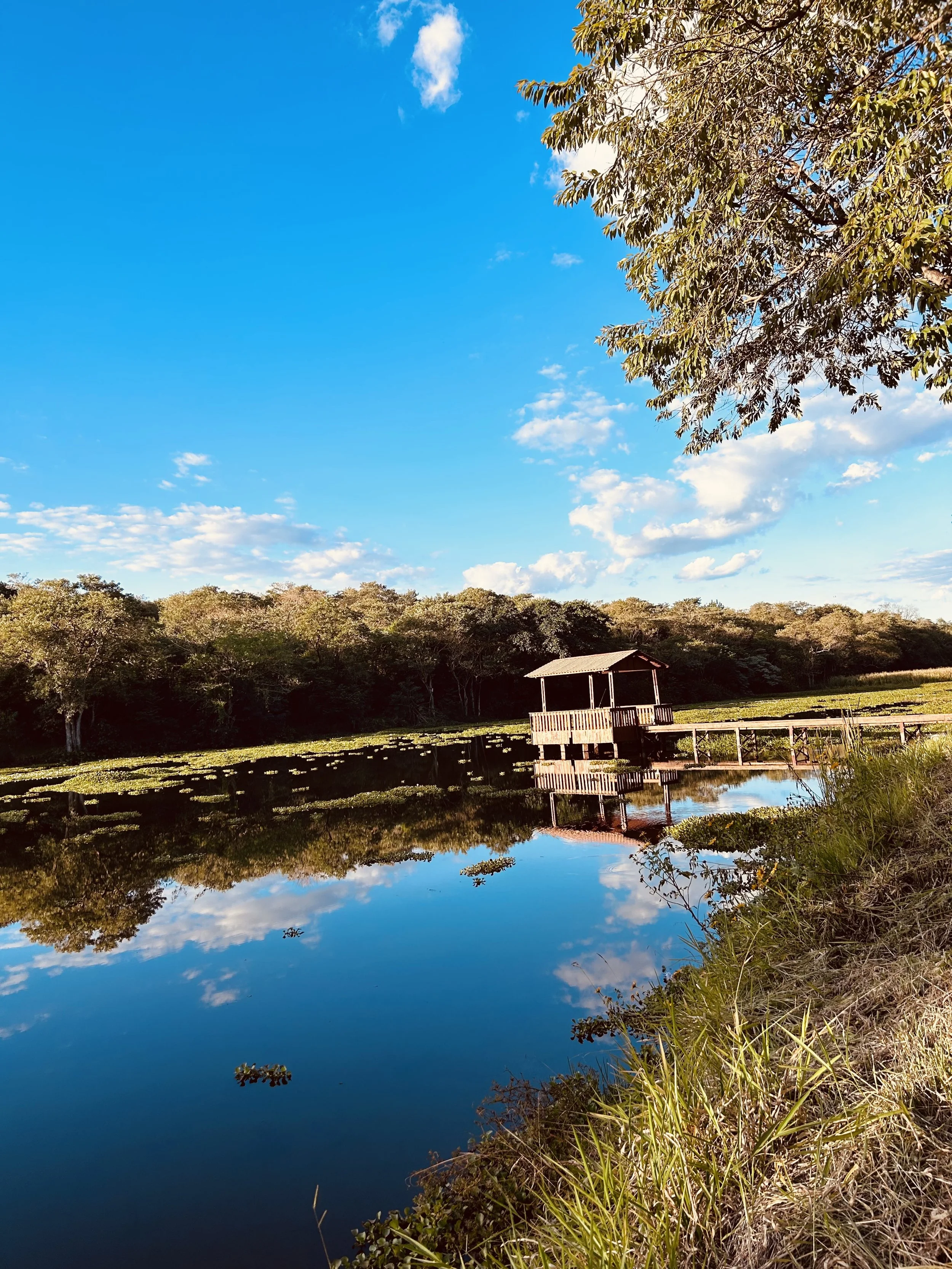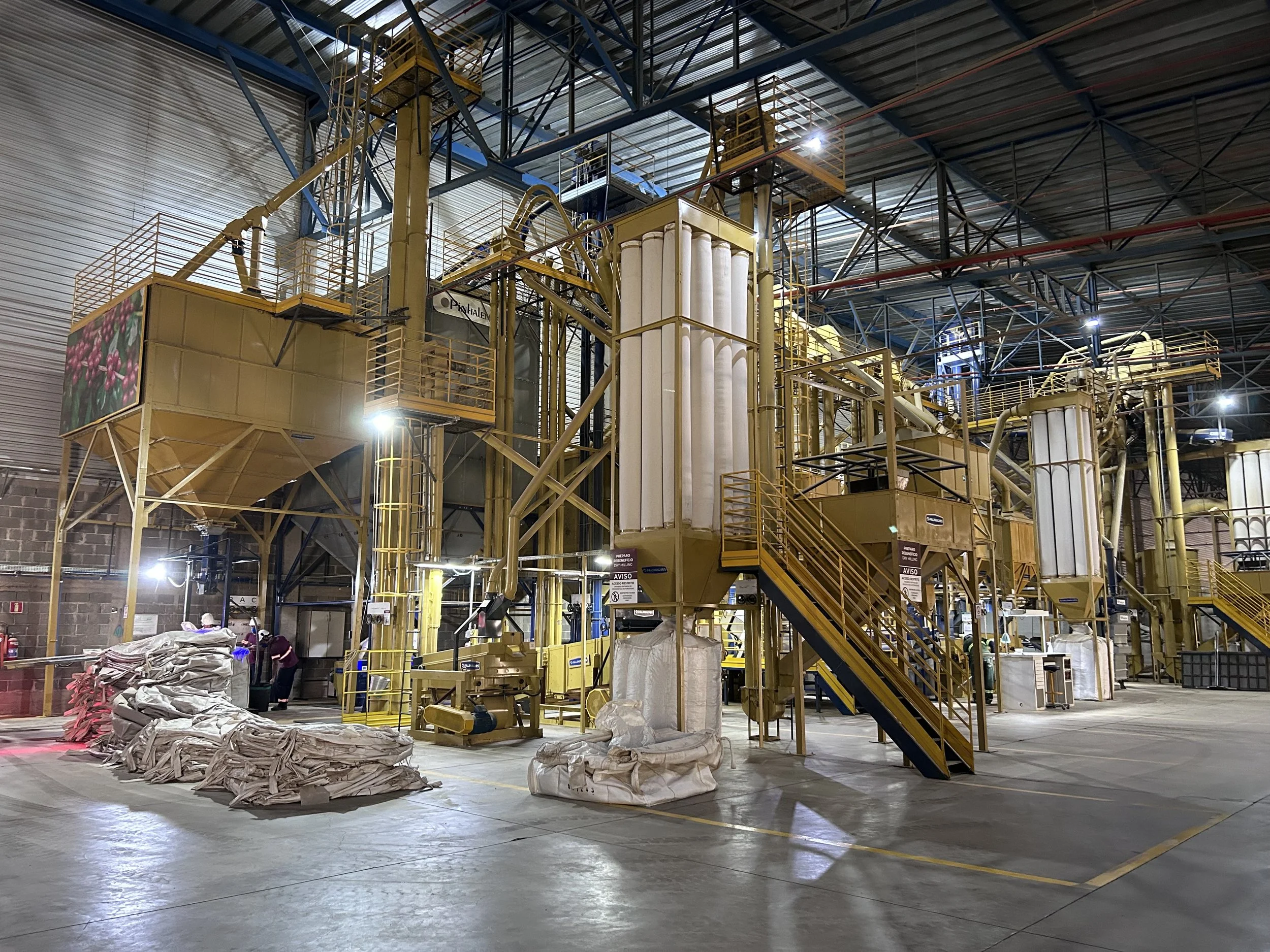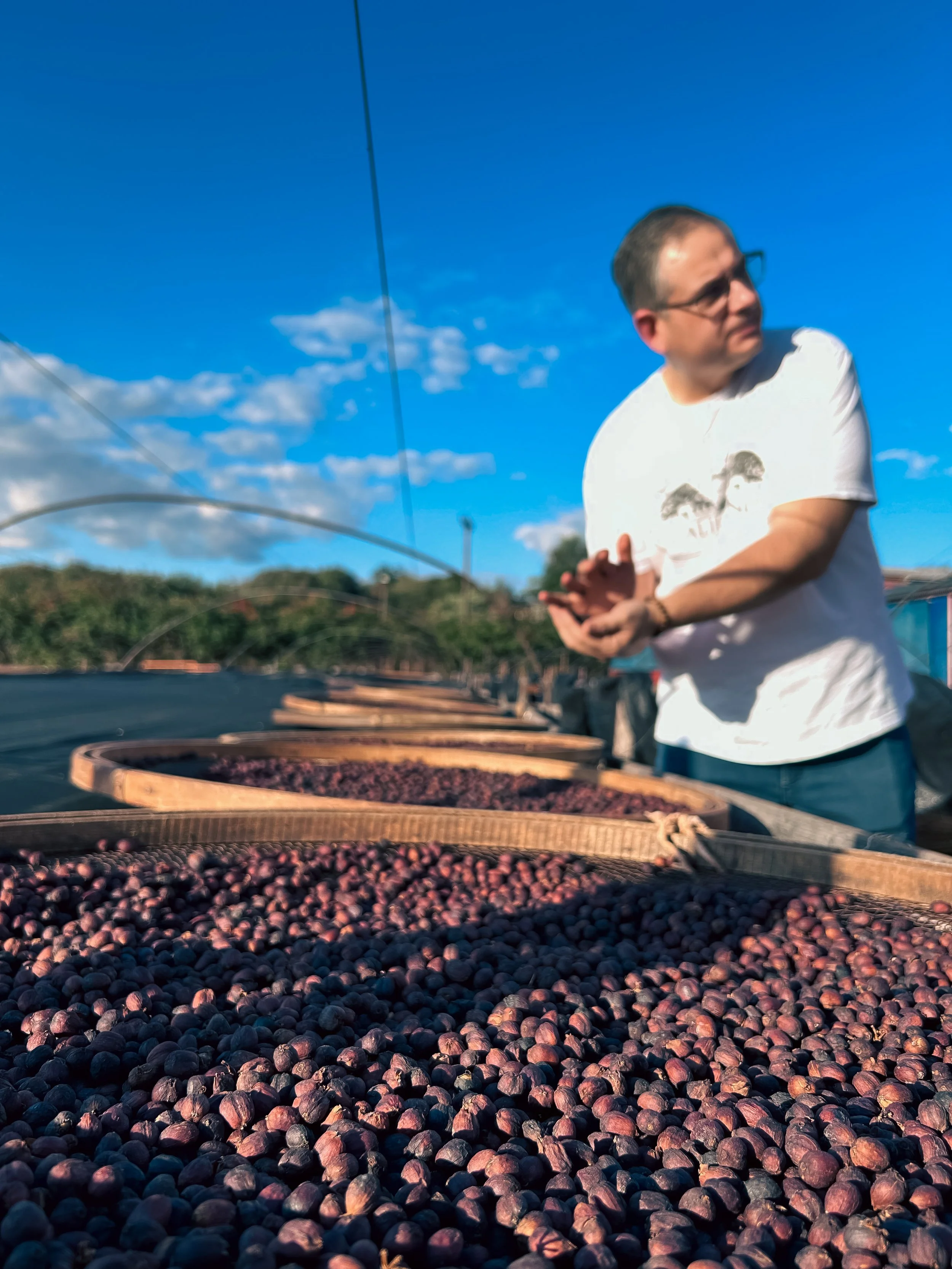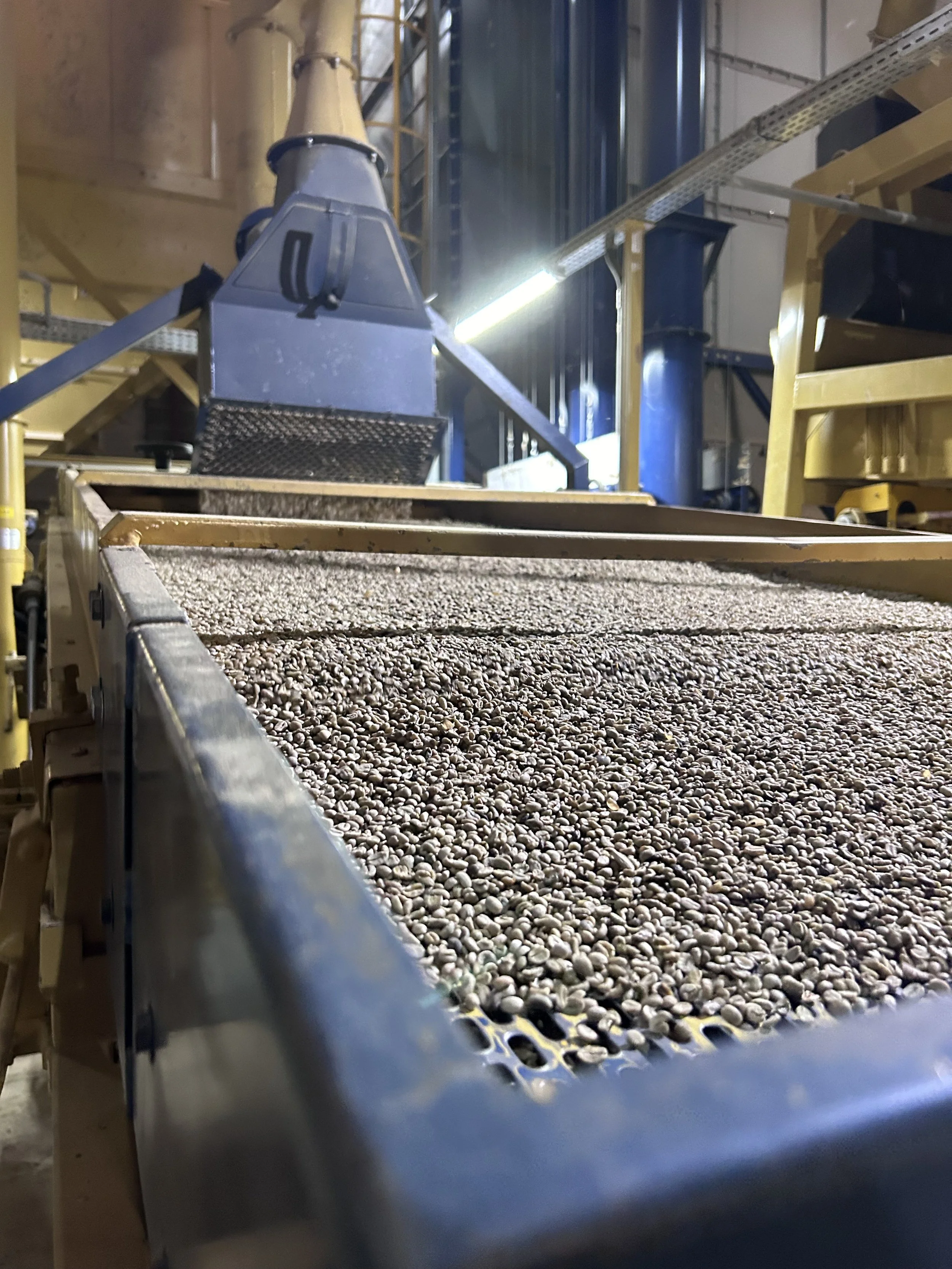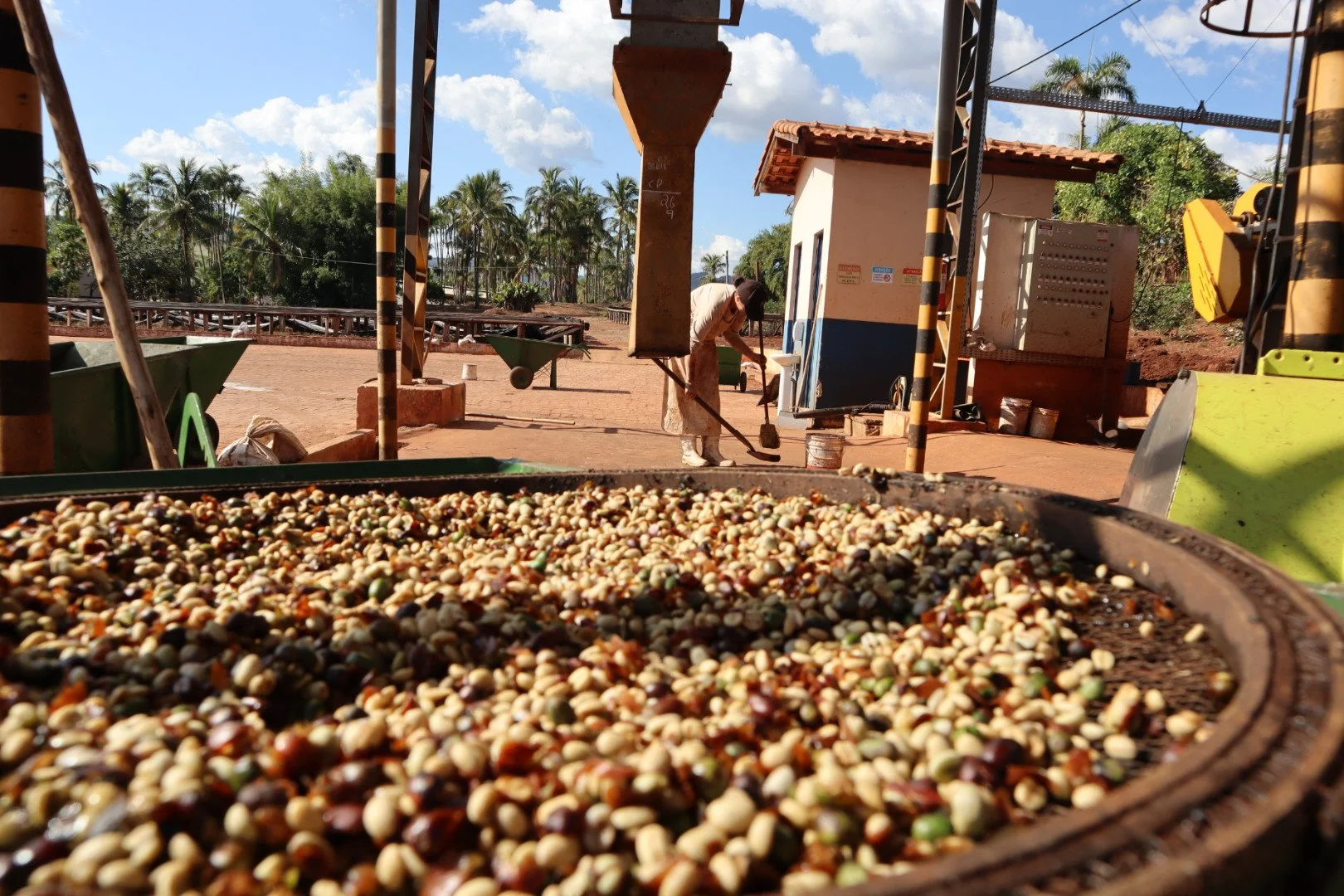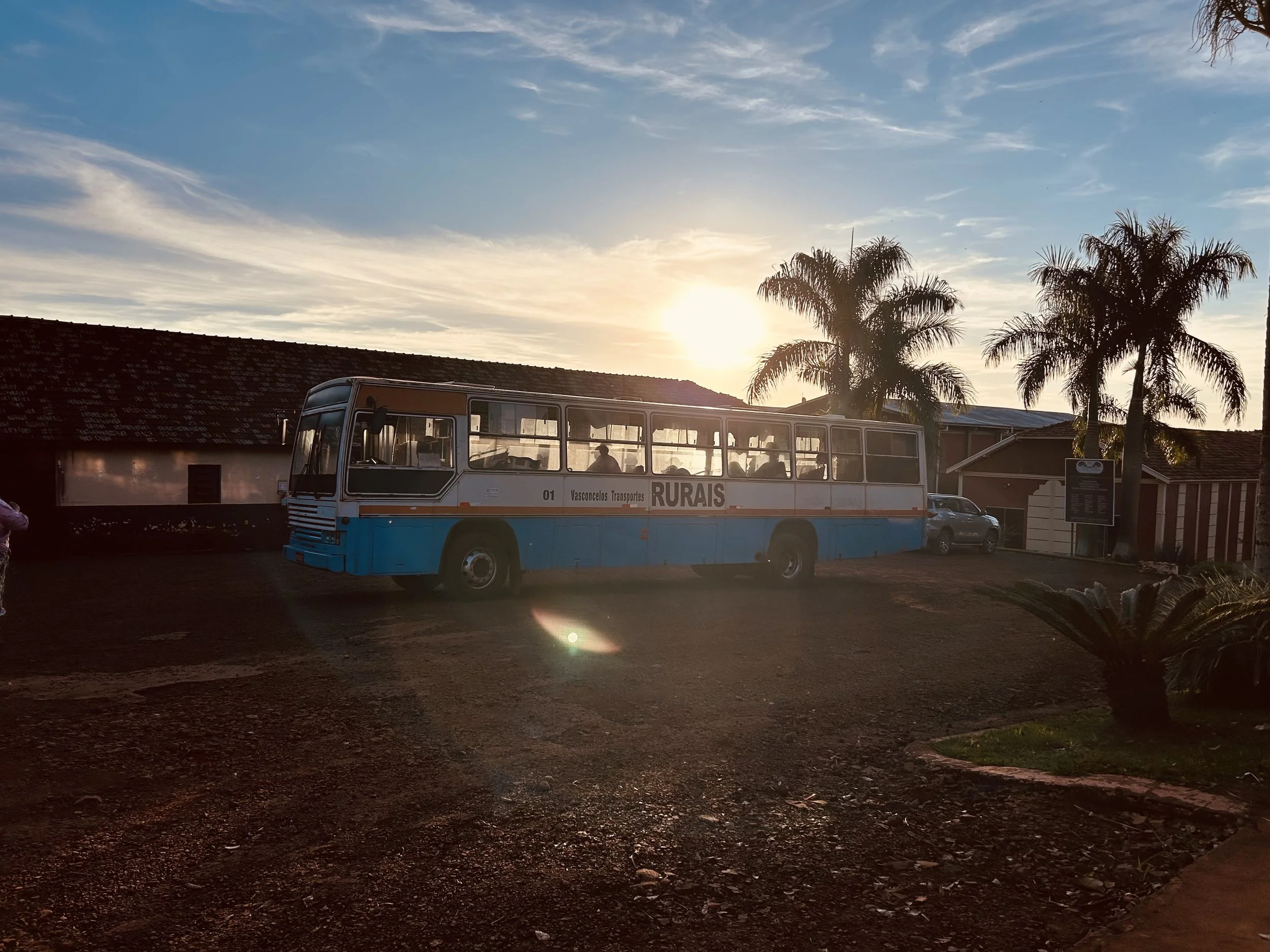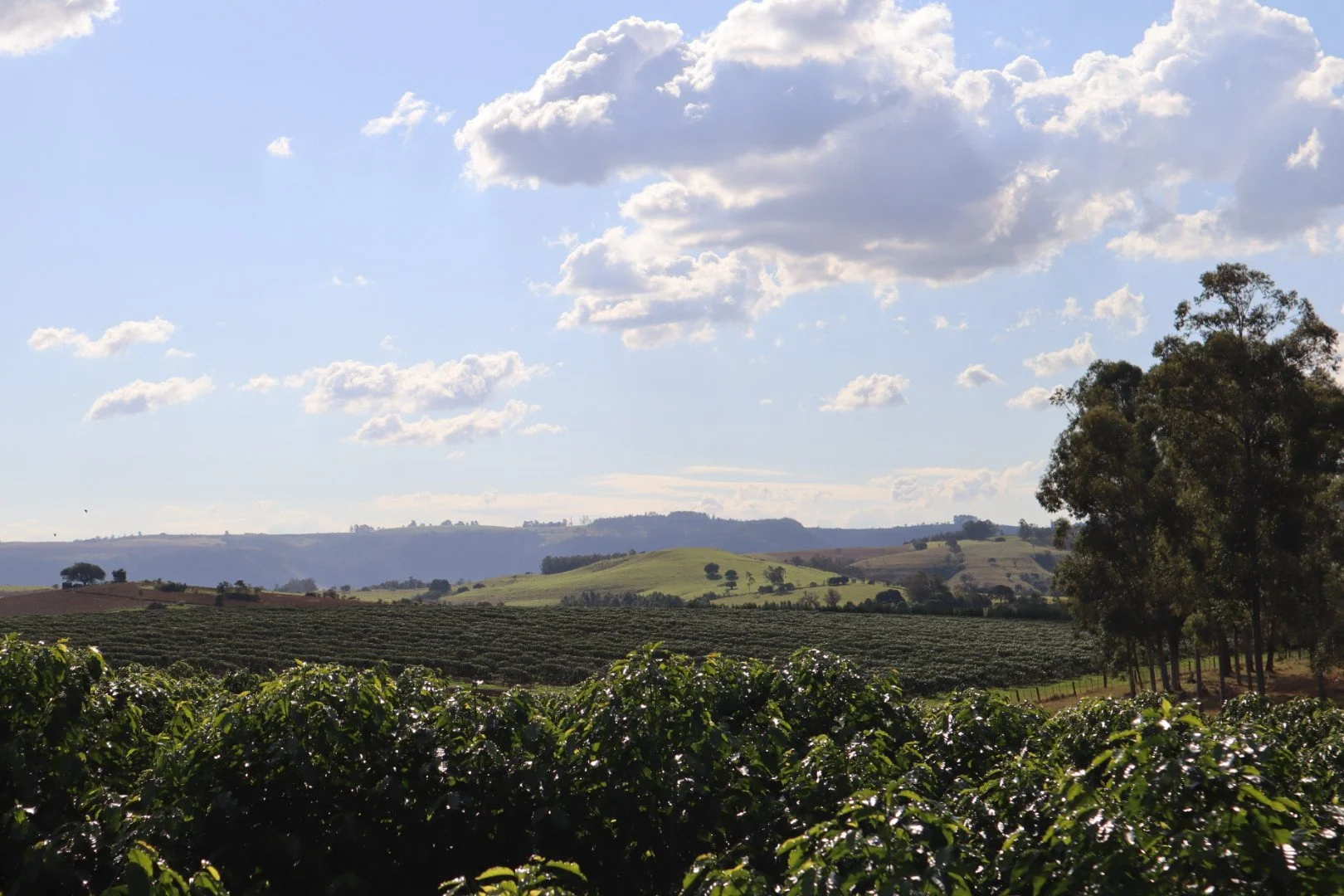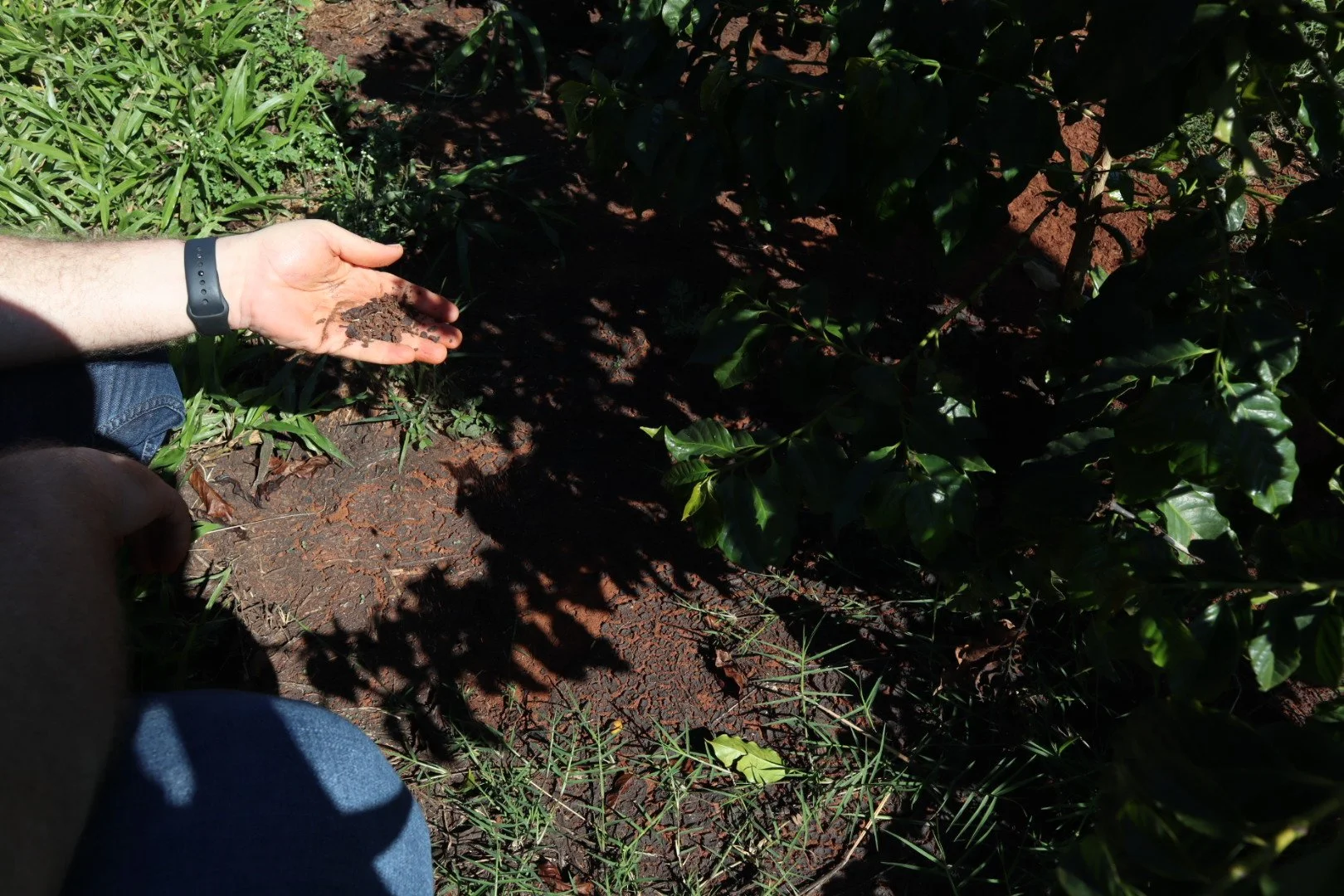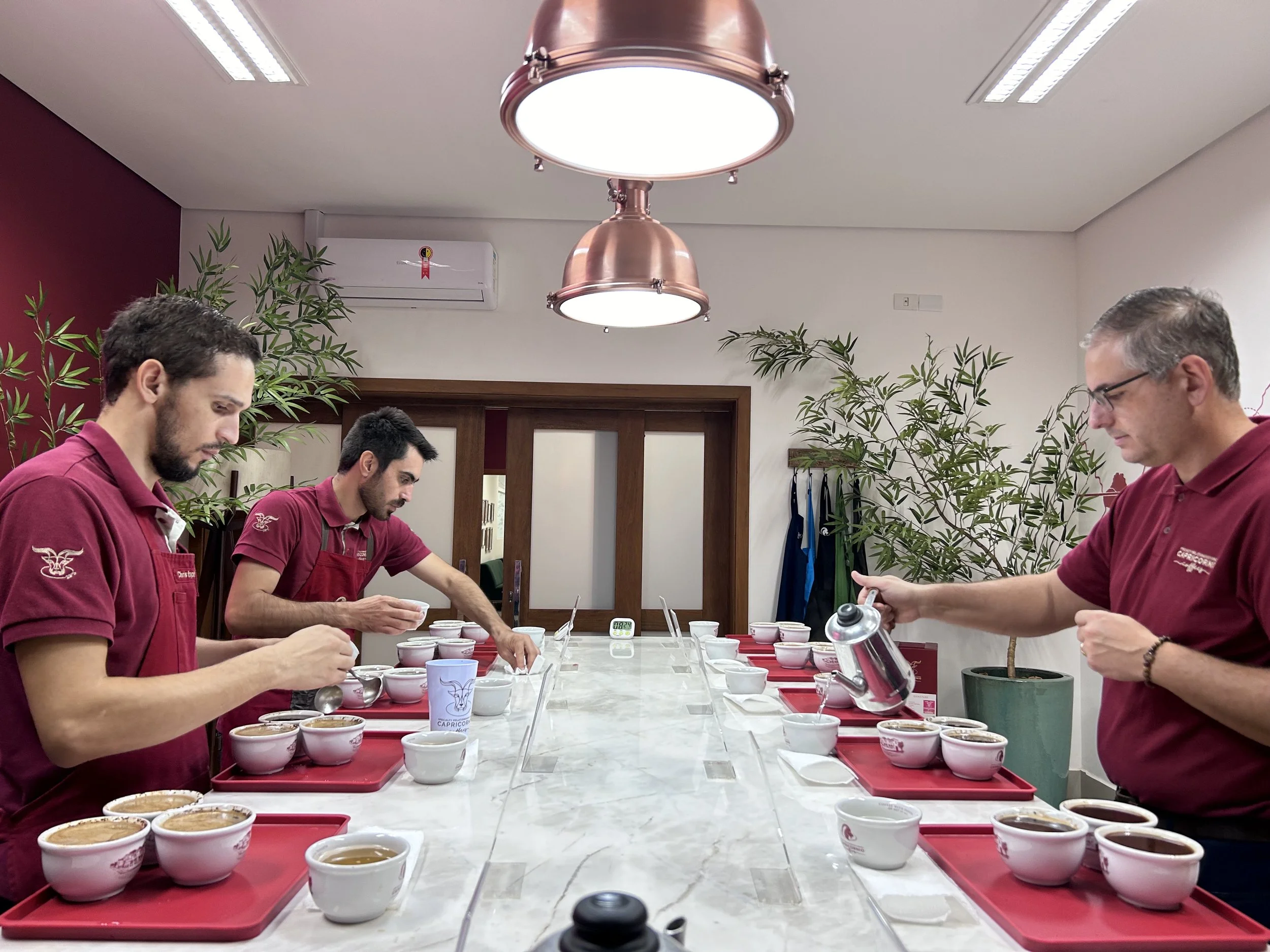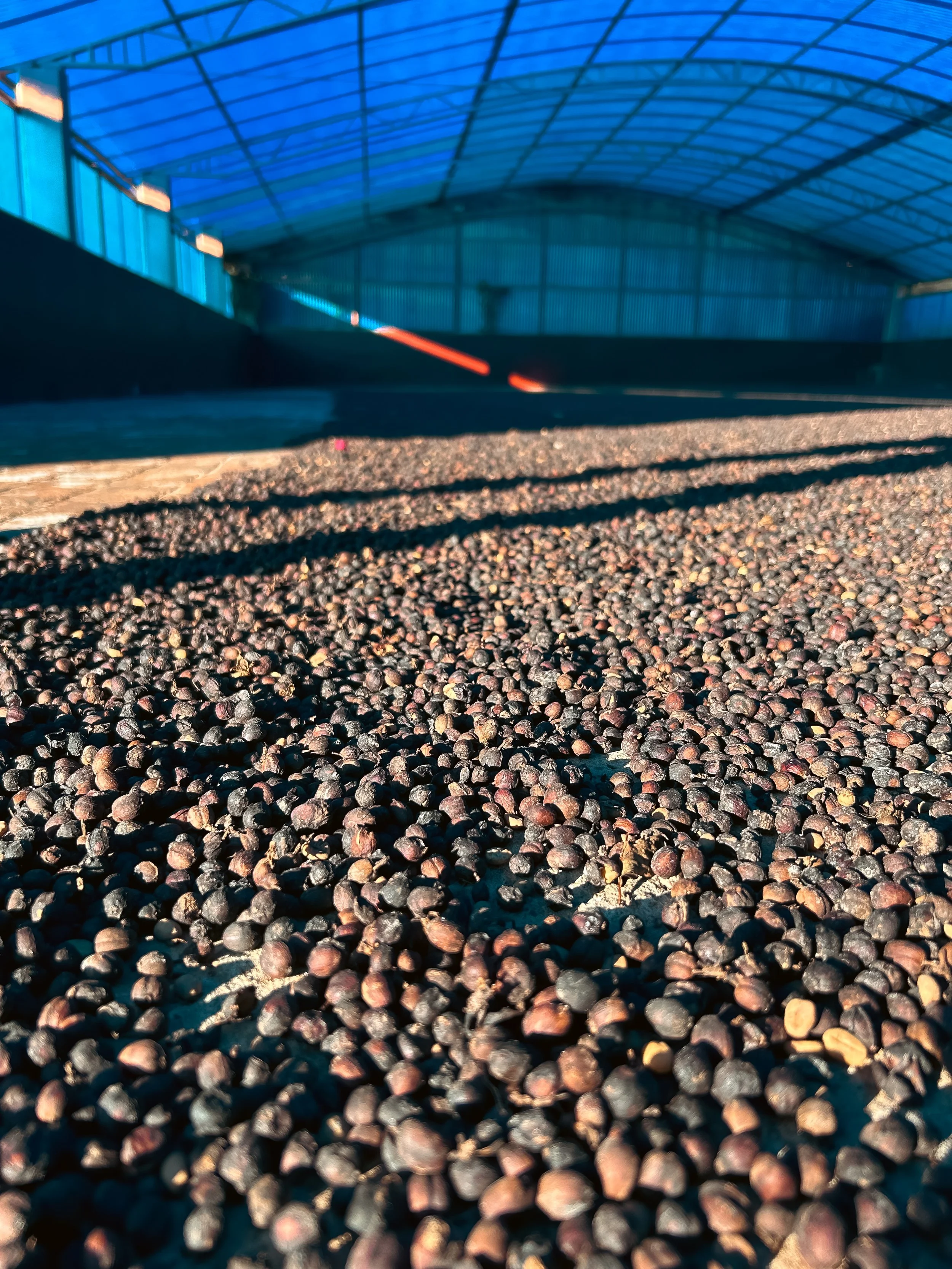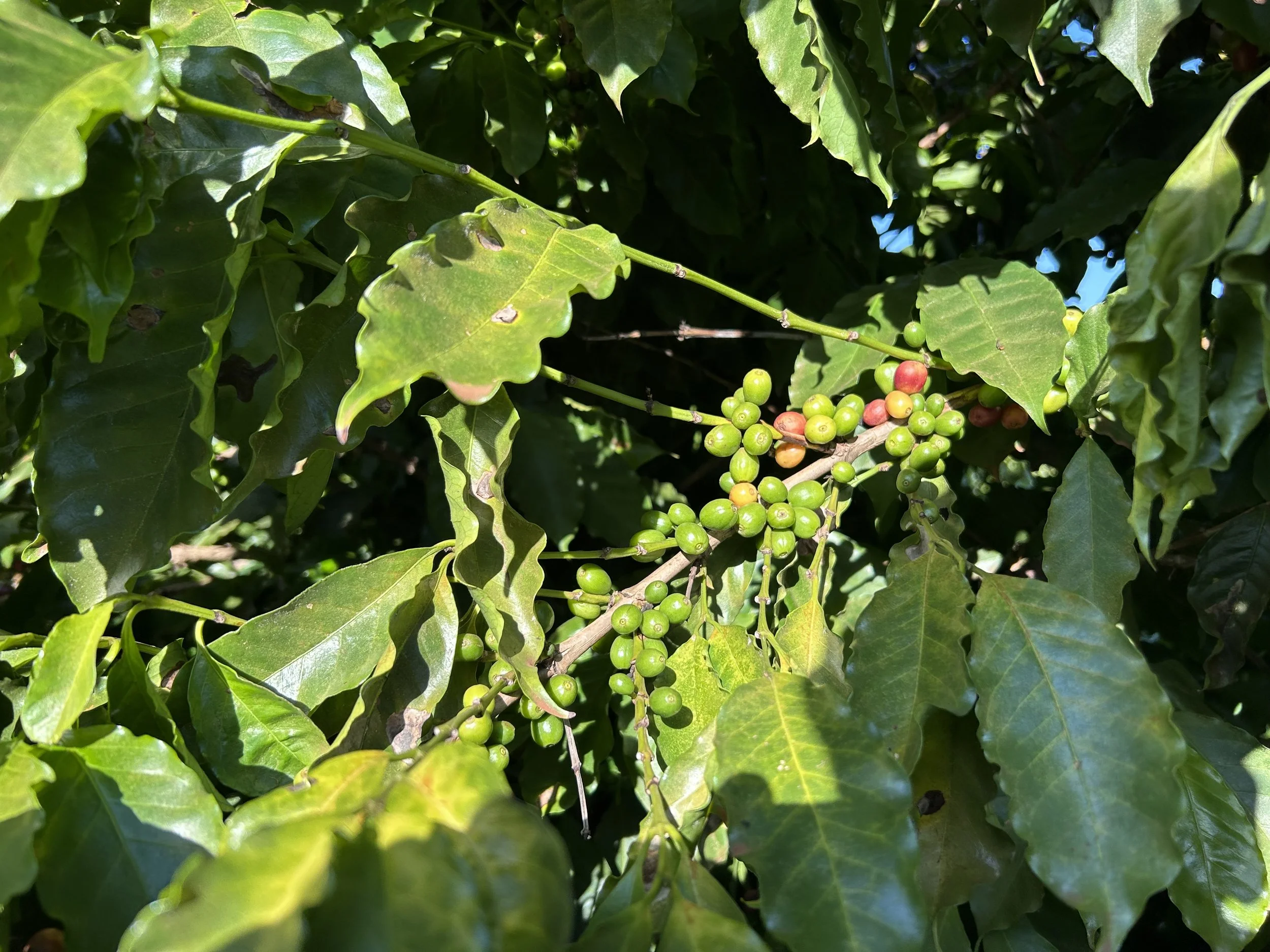Capricornio SIGNAtURE SERIES
HAZEL
Producers: Alvaro Ribeiro | Luiz Saldanha
Farms: Fazenda Santa Maria | Fazenda California
Location: 23°08'48"S 50°00'35"W
Region: São Paulo, Paraná - Jacarezinho
Altitude: 800 - 1,100 MSAL
Variety: Mundo Novo
Process: Natural
Fermentation & Drying Time: 14 - 21 Days sun dried on patios
Harvest Method: Selective Mechanical Picking
Notes
Capiricornio’s mission is to achieve and promote sustainability through regenerative agriculture. Capricornio prides itself for their extreme intentionality by working with coffees that are grown in equal compliance with ecological, social and economic standards, providing coffee farmers and their families with a permanent livelihood.
The Capricornio Hazel series is comprised of naturally processed Mundo Novo cherries. The coffees were sourced and blended from two separate partnering farms, Fazenda Santa Maria and Fazenda California located in the São Paolo & Paraná states of Brazil. The "bica" better known as hulled ungraded parchment was sourced directly from each farm by Capricornio and is transported to their mill to be cleaned, processed and separated utilizing the technology of optical color sorters to assure consistency and removal of primary defects by color coding the optimal beans, and gravity tables to assure the removal any foreign matter, chipped beans or size inconsistencies to assure uniformity in bean size and quality.
Partnering Farms with Capricornio
The Capricornio leadership and agronomy team assists each of the partnering farms by sharing knowledge on new cultivation techniques, coffee plant care, soil management, agricultural practices, residuals disposer, irrigation and water conservation. Other conservation and regenerative resources that are provided by Capricornio:
Monitor and track plant nutrients very closely
Monitor and record solar radiation levels at each of their farms
Track rainfall patterns and mastering irrigation
Constantly track BRIX readings of each of the cherries on each of the farms
Track ambient temperatures and humidity
Repurpose cherry skins post production as natural fertilizer
Plant more native and diverse trees to improve biodiversity in the soil and local environment
Capricornio, heavily revered and renowned for their experimental fermentation practices, is leading the way when it comes to leading by action and example. The team at Capricornio collaborates openly to cross pollinate ideas and share valuable processing techniques to increase value and consistency for partnering farms. Capricornio collaborates openly with select partnering farms to create blends always with their client roasters in mind. The desired profiles are categorized as Capricornio's notable series of "Styles".
Fazenda Santa Maria
Farm Size: Total 190 HA | Coffee 130 HA
Fazenda Santa Maria, for the most part is irrigated by sprinkler and drip irrigation. The farm is also home to cattle and livestock. Fertilizer is naturalized and produced regeneratively from the livestock. The application of the organic residues serve as a source of nutrients and help in the nutritional balance of the soil, which is linked to the management and development of healthy Brachiaria. This favors the existence of a rich biological action in the soil, allowing the farms to express the maximum potential in productivity and quality.
Pruning and vegetation is very well managed, and the zero harvest system is used 100% throughout the farm, allowing for a better ecological balance of production and optimization. The farm is currently undergoing renovation and expansion. In the Ribeiro family, coffee farming is passed down from generation to generation, currently the farm is managed by Alvaro Ribeiro. The family has planted several cultivars on the farm, among the most prominent are the lines of Mundo Novo and Obatã, but Acaiá, Tupi and IPR 107 are also cultivated.
FAZENDA CALIFORNIA
Farm Size: Total 1490 HA
Fazenda California, owned by the Saldanha family, is located in the Brazilian subtropical region of the Norte Pioneiro do Parana. This region is characterized by being the area adjacent to southern Brazil able to develop coffee plantation without the low temperatures of the winter period which hinder production. The coexistence of volcanic soils of high fertility, good distribution of rainfall throughout the year and the binomial established between its average elevation of 750 meters and latitude 23ºS result in a micro climate with average annual temperature of 20ºC, four well defined seasons and a wide temperature range. This in turn creates the ideal environment for the development of the highest quality arabica coffee lots.
In the early 20th century, the land that is now Fazenda California served as a UC Davis coffee research center. In 2004, the Saldanha Rodrigues family acquired the farm. Being a visionary, the entrepreneur, Dr. Paulo Cesar Saldanha Rodrigues who always said that "You can always do things better," a new cycle of coffee plantation was then started on the property. Starting out as a research center for coffee for UC Davis more than a century ago, the last part of the 20th century it served as a sugar cane farm. Dead plant roots, compacted soil, no organic matter, erosion and degraded soil life that caused the farm to slip into a sad state of decay. In 2004, the farm was acquired by Dr. Paulo Cesar Saldanha Rodrigues and his nephew, Luiz Saldanha Rodrigues. The first one being a visionary entrepreneur, the latter an agronomy student and coffee Q-grader in the making. They had big plans to show that agriculture could regenerate a farm and that farming can heal, instead of only take. Not long after the acquisition of the farm, Paulo and Luiz went flying, and suffered a tragic plane crash, which killed Paulo. Luiz decided to continue forward with the dream together with this wife Flavia and complete revitalization of the farm from scratch. They completely revitalized 100% of its coffee production area, every structure on the property, all production processes, harvesting, wet mill, drying, storage and dry mill facilities were all upgraded along with a new management system of sustainable production. Today Luiz and Flavia live at the farm with their two daughters Heloisa and Maria. Fazenda California currently carries the following certifications: Rainforest Alliance, HACCP (Hazard Analysis and Critical Control Points) Certification, Carbo Next Certification, I-rec Standard Certification.
LUIZ SALDaNHA
Luiz is an agronomic engineer with an MBA in Production Management and is currently a member of the Biotechnology research program from the Federal Technical University of Paraná. He is a certified Q-Grader, a Q-Processing Level 3 Expert, Q Processing Instructor, and a National and International Judge for the Cup of Excellence Program (COE). In 2010 he was elected Vice-President of the Specialty Coffees Association of Norte Pioneiro do Paraná (ACENPP) and, in 2012, he assumed the presidency of the institution. Under its management and in partnership with the other institutions participating in the project, in May 2012, the Norte Pioneiro do Paraná Region received the Registration of Geographical Indication of Origin with the INPI (National Institute of Trademarks and Patents), becoming, at the time, the third producing region in Brazil to receive it.
Luiz was an active member of the Technical Committee on Coffee Culture of the Federation of Agriculture of the State of Paraná (FAEP) between the years 2007 and 2014 and a member of the Sectorial Chamber of Coffee of the State of Paraná, having been elected sub-manager of the entity between the years 2011 and 2012. During the period, he assisted in the elaboration of projects for restructuring coffee production in Paraná together with the research and extension agencies of the State, in order to assist the development of public policies for the sector.
Managing Fazenda Califórnia, he was responsible for the implementation of the UTZ Certified (2007) and Rainforest Alliance (2011) social and environmental certification protocols, the first certified property in the State of Paraná, in both cases.
Fascinated by the search for knowledge in the different production and post-harvest techniques of specialty coffees, since 2009, he has made technical visits to different producing countries such as: Costa Rica, Guatemala, Honduras, El Salvador, Panama and Colombia. He also carried out technical collaboration work with renowned international specialists Aida Batlle, from El Salvador, and Lucia Solis, from the USA, validating different fermentation protocols and implementing good processing practices from the wine industry to Fazenda California.
As a cupper, he was a member of the national judges of the Cup of Excellence Competition (COE) in different editions and, in 2013, he was part of COE International Jury. In 2012 he was certified Q-Grader by the Coffee Quality Institute and is currently part of the training program for Assistant Instructors of the institution.
With the adaptation of Fazenda California's production processes, and the search for continuous improvement, it won several awards in State and National quality contests, as well as the honor of being part of the select group of recognized properties with the seal of “Cup of Excellence”. Fazenda California was the first property in Paraná to win a COE title (2010) and the only one to repeat the feat (2015).
In 2018, Fazenda California is promoted by the Starbucks Reserve Program with their first ever Yeast Control Fermentation lot, and receives the partnership for the Social Program “Vozes de São Francisco” child chorus. On the other side of the world, the Taiwanese Coffee in Good Spirits Champion Chris So, competes in the WCE with Fazenda California Honey Moon lot.
In the early months of 2021, Fazenda California opened it’s on-site laboratory to research on microbial behavior and develop microbial “cocktails” to be inserted under the coffee trees. Next to soil microbial behavior, the laboratory is also the home of a PhD research on microbial behavior in the fermentation tank, and specifically, the changes of DNA composition when fermenting. Once again, Fazenda California is proving to be on the forefront of coffee science in general, and more so, science that can help farmers to develop regenerative agricultural systems.

